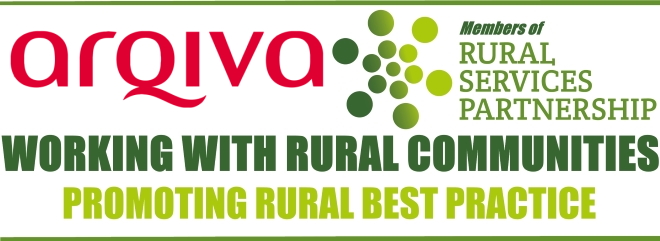T: 01822 851370 E: [email protected]
Broadcast 2040+ Campaign Gains Momentum with New Silver Voices Report

As you may have seen in previous editions of the RSN Spotlight, the Rural Services Network (RSN) is a founding coalition member of the Broadcast 2040+ campaign which now has over 30 members. The campaign was established to ensure the government's media policy protects vital broadcast TV and radio services for decades to come – to 2040 and beyond. As it stands, these services are only guaranteed until the early 2030s.
Rural communities, including those that the RSN represents, rely heavily on digital terrestrial television (DTT), commonly known as Freeview, and broadcast radio. These services are universally available and don't require a superfast broadband connection or a monthly subscription cost.
This week the over-60s campaign group Silver Voices – another founding member of the Broadcast 2040+ campaign - published a new report exploring the importance of broadcast services now and in the future. The report revealed that there is strong support among the British public for broadcast TV and radio services to be protected until well beyond 2040.
Some key takeaways:
- Over 80% of respondents believe broadcast TV and radio should be protected well beyond 2040, with respondents' answers ranging between 2051 and 2079. This is far in advance of the UK Government's current commitment.
- Almost three-quarters (74%) of respondents believe that the partial or total removal of broadcast services in the future risks leaving behind significant portions of the population.
- Overall, over 2 in 3 (67%) agreed that it would be unfair to make people rely on the internet or online for all TV and radio services.
- A wide range of concerns about this emerged in the research. About three-quarters worry that large sections of the population would be left behind if broadcast TV and radio were not protected, particularly those living in rural areas (74%). and poorer groups (73%).
- In Wales, which has a higher level of rurality, almost 2 in 3 (63%) worry that certain groups would be ‘left behind’ in an online-only future. Among those worried, concerns are particularly high about those in rural areas (88%).
For rural communities, the importance of preserving these broadcast services cannot be overstated. In many remote and underserved areas, reliable high-speed broadband remains a challenge. This makes broadcast TV and radio the lifeline for information, entertainment, and community engagement. It's not surprising that the report found that 81% said that universal access to public service content should be protected by the law.
Protecting these services through legislation will be key. Over the next twelve months, there will be a number of opportunities for the campaign to make the case for doing so. The first opportunity was announced last week by Ofcom. Its call for input on their review of TV distribution will examine the development of the TV distribution landscape over the next decade.
We encourage RSN members to respond to this call for input which closes on 12th December here, and make the case for safeguarding the future of broadcast services for rural communities. Together, we can ensure that these services remain accessible for all, regardless of where they live.
Keep your eyes peeled for more updates on our activity and for any questions or for more information on how to get involved please email [email protected] or visit our website https://www.broadcast2040plus.org/.



